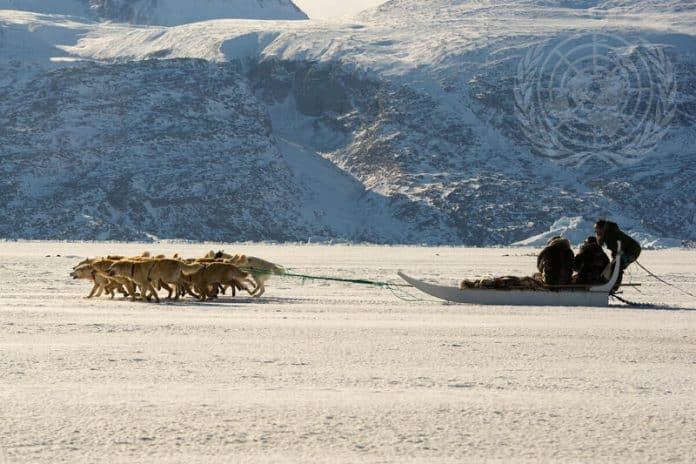November 14, 2023 marks the day Greenland signed up for the Paris Agreement by the UNFCCC. This is a turning point for the climate action and the Greenlandic government Naalakkersuisut’s commitments to bring down greenhouse gas emissions.
The international agreement from COP21 in Paris 2015 has been signed by 195 nations and the EU parliament. By signing the historic agreement, the member states commit to reduce their greenhouse gas emissions to prevent the global temperature from rising to no more than maximum 2.0 Celsius, the goal being 1.5 Celsius.
As a result of a recent voting in the Greenlandic parliament Inatsisartut, the country has signed up for the Paris Agreement on November 14. The agreement is signed up for after a thorough legal investigation to protect Greenland’s economic growth and indigenous societies. “The thorough groundwork shows that the Paris Agreement is not a hindrance to Greenland’s development; on the contrary,” says Minister for Agriculture, Self-Supply, Energy and Environment, Kalistat Lund in a press release from the Government of Greenland.

Greenland is part of the Kingdom of Denmark, but with a high autonomy to govern local decision making through the Greenlandic parliament, Inatsisartut. Denmark will not be part of the climate agreement in Greenland: “When the Naalakkersuisut receives a mandate from the Inatsisartut, we can negotiate directly with the UN. After that, the Naalakkersuisut returns to the Inatsisartut to make decisions based on the negotiations with the UN,” says Erik Jensen, Chairperson of Suimut states to the local media KNR and continues: “Therefore, it is the Inatsisartut itself that gets to determine how the climate agreement will look”. “We join in acknowledgment that we are an indigenous people with the right to self-determination. We are responsible for our climate policy, and we join the Paris Agreement on these terms,” states Minister Kalistat Lund in the press release.
Next steps
Naalakkersuisut must now develop a national climate strategy. This will be done in collaboration with citizens, businesses, and civil society. The strategy is intended to include climate goals and set the direction for how Greenland can achieve economic growth alongside the green transition.
Based on the climate strategy, a nationally determined contribution (NDC) will be established, containing climate goals for each sector. Greenland may decide to exclude certain sectors, such as natural resources and/or fisheries.
Greenland’s NDC is expected to be submitted to the UNFCCC, taking effect from 2030. An NDC is valid for five years at a time. The UN Climate Change Conference (COP28) will take place in Dubai, United Arab Emirates, from 30 November to 12 December this year.




